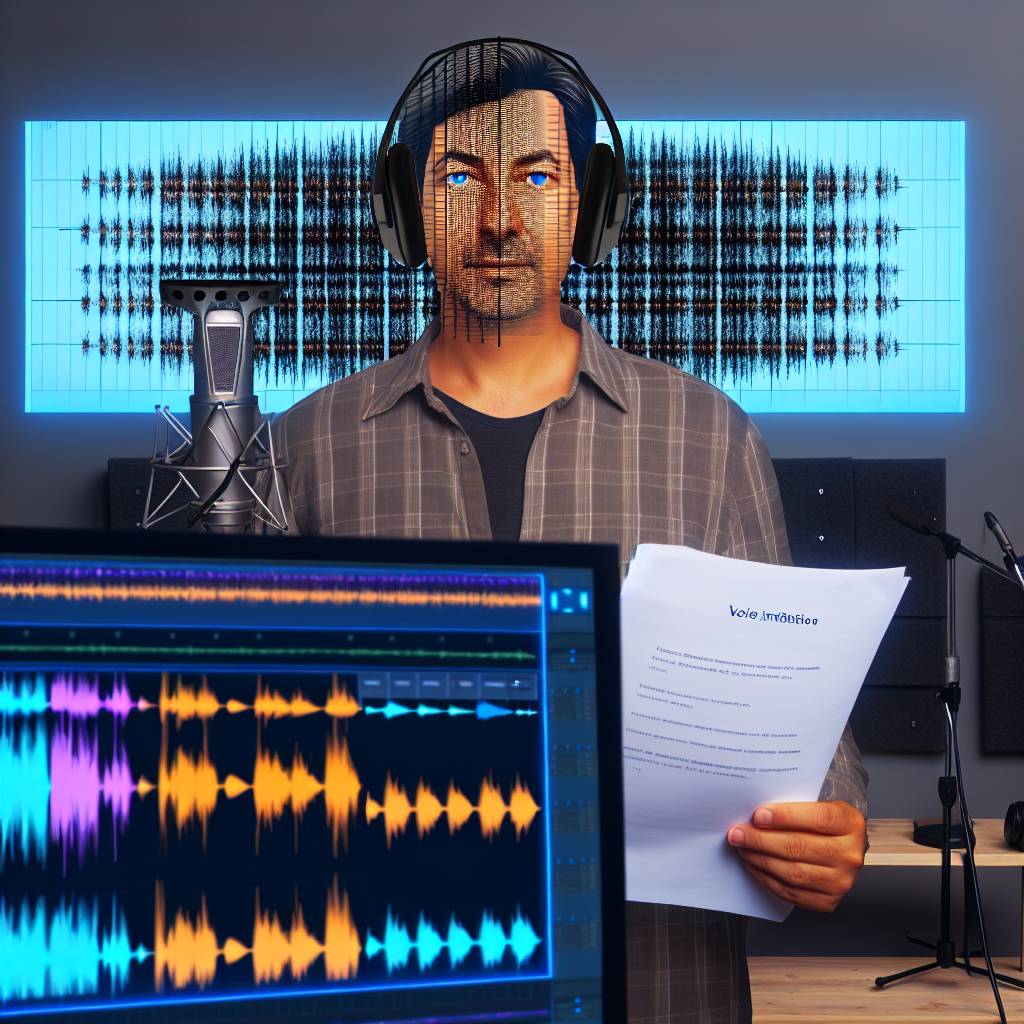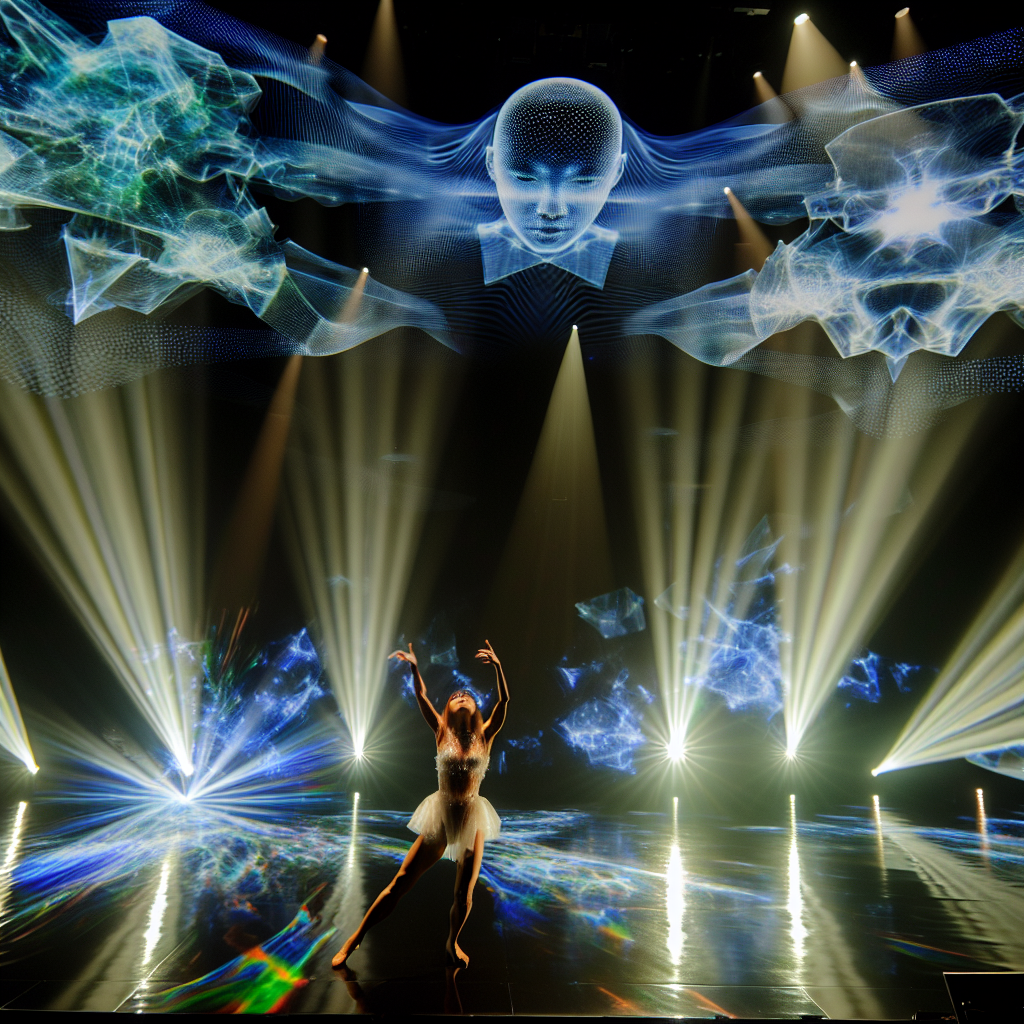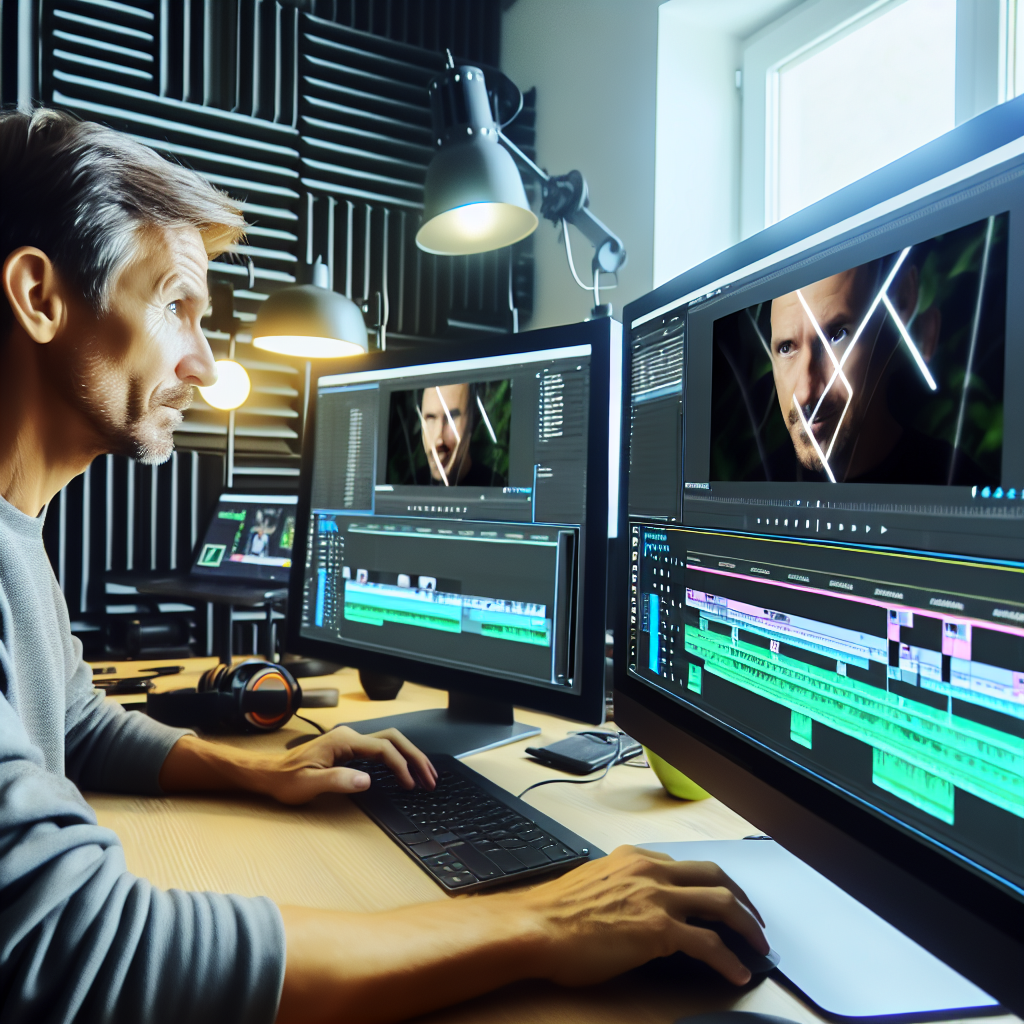Introduction
The evolving landscape of live events and the integration of technology
The landscape of live events has undergone significant transformation over recent years.
Technology has revolutionized how audiences experience concerts.
Event planners now encounter new opportunities to engage attendees.
Amidst this change, Virtual Reality (VR) emerges as a game-changer.
Overview of Virtual Reality (VR) and its significance in enhancing live concert experiences
Virtual Reality immerses users in a three-dimensional environment.
his technology allows concertgoers to feel present, regardless of their physical location.
Through VR, fans can enjoy dynamic visual and audio experiences.
They can engage with performances that feel incredibly real and personalized.
Integrating VR into live concerts enhances the overall experience.
Attendees perceive concerts with heightened emotional and sensory impact.
This enables artists and planners to extend their reach beyond geographical boundaries.
Fans can attend events they might not otherwise experience.
Importance of VR live concert software for event planners in creating immersive experiences
For event planners, VR live concert software plays a critical role.
It enables the creation of immersive environments that captivate audiences.
Planners can tailor experiences based on audience preferences and demographics.
They can use data-driven insights to optimize show choreography.
This software offers interactive elements that deepen audience engagement.
Attendees can choose perspectives, like front-row seating or backstage access.
Moreover, these features encourage social interactions among fans, enhancing the overall event atmosphere.
Utilizing VR software also simplifies logistical challenges for planners.
They can produce large-scale events without physical constraints.
Virtual concerts reduce costs related to travel and production.
This allows planners to allocate resources toward innovative experiences.
As the demand for unique entertainment experiences grows, event planners must adapt.
Embracing innovative technology like VR is vital for meeting audience expectations.
By incorporating VR live concert software, planners elevate the experiences they offer.
This not only deepens fan engagement but also sets events apart in a competitive market.
Therefore, VR live concert software opens new avenues for event planners.
It enhances live events, providing audiences with unforgettable experiences.
The future of live concerts lies in the fusion of technology and creativity.
Understanding VR in the Context of Live Concerts
Virtual Reality (VR) offers immersive experiences that transport users into digital environments.
It creates simulations that users perceive as real.
Headsets and specialized software facilitate interaction within these environments.
This technology appeals to various sectors, especially event planning.
Definition and Explanation of Virtual Reality (VR)
VR stands for Virtual Reality, a technology that immerses users in a computer-generated space.
We Design & Develop Websites, Android & iOS Apps
Looking to transform your digital presence? We specialize in creating stunning websites and powerful mobile apps for Android and iOS. Let us bring your vision to life with innovative, tailored solutions!
Get Started TodayIt engages multiple senses, primarily sight and sound.
Users can interact with a 3D environment using headsets, gloves, and motion sensors.
This interactivity enhances the experience, making it more engaging.
Various industries utilize VR, from gaming to education.
In the entertainment sector, it revolutionizes how people experience concerts.
By placing users in a virtual setting, VR allows for new ways to enjoy live performances.
Historical Context: How Live Concerts Have Evolved with Technology
Live concerts have undergone significant evolution over the decades.
From traditional outdoor gatherings to grand stadium performances, the changes reflect technological advancements.
In the early days, concerts were simple affairs, often held in local venues.
Musicians performed to small audiences, creating an intimate atmosphere.
As technology progressed, so did the concert experience.
Innovations such as electric amplification transformed how music was performed and experienced.
The introduction of light shows and sound systems enhanced audience engagement.
With each advancement, the idea of a concert became more dynamic.
In recent years, digital streaming has revolutionized how audiences access live music.
Concerts now reach viewers far beyond physical locations.
Platforms like YouTube and Twitch help musicians connect with global audiences.
This shift laid the groundwork for integrating VR into live performances, creating immersive experiences.
The Role of VR Technology in Reshaping Audience Experiences
VR technology fundamentally changes how audiences engage with live concerts.
It provides experiences that go beyond traditional viewing.
With VR, users enjoy the sensation of being present at an event.
They can feel the energy of the crowd and the excitement of live music.
Here are some key benefits of VR in live concerts:
- Immersion: VR immerses users in a concert setting, making them feel physically present.
- Accessibility: It allows audiences worldwide to experience concerts without travel constraints.
- Unique Perspectives: Viewers can choose their angles and positions within a virtual venue.
- Interactive Elements: Users can engage with artists or performative elements actively.
- Enhanced Social Experiences: VR enables shared experiences, allowing audiences to attend concerts together in virtual spaces.
These advantages present new opportunities for event planners.
They can generate fresh engagement strategies that captivate audiences.
This innovative approach can also lead to increased interest and potential ticket sales.
The Future of VR in Live Concerts
As technology continues to advance, the possibilities for VR in live concerts expand.
Artists and event planners are exploring collaborations to enhance audience engagement.
The future holds exciting prospects, including:
- Hybrid Experiences: Combining physical and virtual concerts to cater to diverse audiences.
- Personalization: Customizing experiences based on user preferences and interests.
- AI Integration: Utilizing artificial intelligence to create dynamic concert environments.
- Data Analytics: Leveraging analytics to understand audience behaviors and preferences.
- New Revenue Streams: Exploring monetization options through VR content and merchandise.
Event planners who embrace VR technology can position themselves as pioneers in the industry.
By adopting immersive experiences, they cater to modern audiences seeking innovation.
This approach not only elevates concerts but also sets a new standard for entertainment.
Challenges and Considerations
Despite its advantages, implementing VR in live concerts faces challenges.
Event planners need to consider several factors
- Technical Limitations: Reliable technology is essential for seamless experiences.
- Cost: High-quality VR equipment can be expensive for both planners and attendees.
- User Experience: Ensuring an intuitive user experience is critical to engagement.
- Content Quality: High-quality VR content is necessary for meaningful experiences.
- Market Acceptance: Measuring audience acceptance of VR experiences is essential for success.
Addressing these challenges requires collaboration across various sectors.
We Design & Develop Websites, Android & iOS Apps
Looking to transform your digital presence? We specialize in creating stunning websites and powerful mobile apps for Android and iOS. Let us bring your vision to life with innovative, tailored solutions!
Get Started TodayTechnologists, artists, and event planners must work together to bring innovative ideas to life.
By focusing on user needs and preferences, they can create impactful experiences that resonate with audiences.
Virtual Reality is transforming the event planning landscape, particularly in live concerts.
It allows for unprecedented audience engagement and immersion.
By understanding VR’s role and potential, event planners can create unforgettable experiences.
The journey of integrating VR technology into live events has just begun.
As technology continues to evolve, so will the experiences it creates.
Read: Music Composition Software for Aspiring Composers in 2024 & 2025
Benefits of Using VR Live Concert Software
Virtual reality (VR) live concert software transforms how audiences experience music events.
It creates captivating environments that draw people in from all over the world.
Event planners can leverage these technologies to create memorable experiences.
This section explores the significant benefits of employing VR live concert software.
Enhanced Audience Engagement Through Immersive Environments
One of the primary benefits of VR live concert software is enhanced audience engagement.
Immersive environments elevate the experience for both live and remote participants.
Here are some ways this engagement improves:
- Realistic Experiences: VR technology allows attendees to feel like they are part of the concert. Participants can explore 360-degree views of the venue.
- Interactive Features: Users can choose camera angles, interact with virtual elements, or join live discussions. This interactivity fosters a sense of community among fans.
- Personalization: VR platforms often allow users to customize their experiences. Attendees can choose their avatars, outfits, and location in the virtual environment.
- Social Sharing: Many VR concert platforms incorporate social media features. Fans can share their experiences with friends, amplifying engagement beyond the event.
This immersive experience keeps attentive audiences engaged and invested in their favorite artists.
As a result, event planners can cultivate lasting connections between musicians and fans.
Opportunities for Worldwide Reach
Traditional concert settings often limit attendance to a specific geographical area.
VR live concert software breaks these barriers and expands accessibility.
This worldwide reach benefits both event planners and attendees in multiple ways:
- Global Audience Access: Fans from different parts of the world can attend concerts without travel constraints. This inclusivity generates excitement among diverse audiences.
- Increased Ticket Sales: With a broader audience base, planners can sell more tickets and generate additional revenue streams. Interested fans can easily purchase virtual tickets online.
- Reduced Time Zone Barriers: Event planners can schedule concerts to accommodate various time zones. Audiences can tune in at convenient times, regardless of their location.
- Collaborations Across Borders: Artists from different countries can collaborate easily. These partnerships enrich the virtual concert experience and promote cultural exchange.
This opportunity for worldwide reach not only benefits attendees but also enhances the event planner’s reputation as an innovative organizer.
Potential to Reduce Logistical Costs for Venue and Setup
Hosting a physical concert often involves extensive planning and financial investment.
However, VR live concert software offers an alternative that can cut down these costs dramatically.
- No Physical Venue Required: Virtual concerts eliminate the need for booking venues, reducing expenses related to rentals. This also removes the associated costs of utilities and maintenance.
- Minimal Staffing Needs: Staff requirements are usually lower for virtual events. This benefit dramatically reduces overhead costs for event planners.
- Logistical Flexibility: Planning a virtual concert allows for flexibility regarding time and location.
Event planners can react to challenges like natural disasters or travel restrictions without losing momentum. - Simplified Production: Many software tools come with built-in production support. This benefit can lessen the technical requirements, lowering setup complexities for planners.
By cutting down these logistical costs, event planners can allocate resources better for marketing or artist promotion, ultimately leading to increased profits.
The landscape of live concerts is rapidly changing, and VR live concert software plays a significant role in this transformation.
By enhancing audience engagement through immersive environments, event planners create extraordinary experiences.
Moreover, they can reach global audiences, breaking down geographical barriers and expanding their fan base.
Finally, by reducing logistical costs, planners gain more flexibility and financial security in their projects.
Overall, the adoption of VR live concert software yields numerous benefits that cater to both planners and attendees alike.
Investing in this technology enables event planners to elevate their events and create unforgettable moments for music lovers worldwide.
Read: Voice Recognition Software Transforming Podcasts for Content Creators
Key Features to Look for in VR Live Concert Software
Choosing the right VR live concert software is crucial for event planners aiming to elevate their event experiences.
The software should not only provide a visually stunning environment but also cater to the user experience of organizers and attendees.
Below are key features to consider when selecting VR live concert software.
Quality of Graphics and Immersive Experience
High-quality graphics play a vital role in creating an immersive concert experience.
We Design & Develop Websites, Android & iOS Apps
Looking to transform your digital presence? We specialize in creating stunning websites and powerful mobile apps for Android and iOS. Let us bring your vision to life with innovative, tailored solutions!
Get Started TodayAttendees should feel as though they are part of a live event rather than merely watching a screen.
Look for software that offers:
- Realistic 3D Environments: The software should create lifelike representations of venues. This includes details like lighting, sound, and audience dynamics.
- High-Resolution Graphics: Opt for software that supports HD or 4K graphics. This improves clarity and realism, enhancing immersion.
- Customizable Environments: Some software allows planners to customize the environment based on the event’s theme.
- Advanced Audio Effects: Audio quality is equally important. Attendees should experience rich, immersive soundscapes.
- Interactive Elements: Integrating interactive elements such as virtual merchandise stalls can further engage attendees.
Ultimately, the goal is to create a virtual atmosphere that rivals real-life experiences.
This leads to higher attendee satisfaction and lasting memories.
Ease of Use for Both Event Planners and Attendees
If the software is cumbersome, both planners and attendees may face challenges.
A user-friendly interface simplifies the entire process, making events run smoothly.
Consider the following:
- Intuitive Dashboards: Both planners and attendees should easily navigate the software. A straightforward layout saves time and reduces frustration.
- Clear Setup Instructions: Planners should have access to guides or tutorials. This helps them set up events without encountering technical difficulties.
- Minimal System Requirements: Ensure that the software does not require high-end devices. This makes it accessible to a wider audience.
- Seamless Registration Process: Attendees should be able to register and log in easily. Complicated processes can deter potential attendees.
- Customer Support: Look for software that provides dedicated customer support. This is essential for addressing issues promptly.
By focusing on ease of use, planners can offer a delightful experience from registration to the concert itself.
Happy attendees are more likely to share their positive experiences.
Integration Capabilities with Other Event Planning Tools and Platforms
Integration capabilities can significantly enhance the functionality of VR live concert software.
By enabling connections with existing tools, planners can streamline operations and improve efficiency.
Consider these aspects:
- Compatibility with Ticketing Platforms: Software should integrate effortlessly with ticketing systems. This allows for smooth sales and tracking of attendance.
- Linking to CRM Tools: If the software connects with Customer Relationship Management (CRM) systems, planners can manage attendee data effectively.
- Social Media Integration: Easy sharing options on social media platforms encourage attendees to promote the event. This boosts visibility and engagement.
- APIs for Custom Integrations: Look for software that provides APIs. This allows planners to create custom connections as needed.
- Analytics and Reporting Tools: Integration with analytics tools can provide valuable insights post-event. Planners can assess engagement, sales, and overall success.
A robust integration capability allows for a cohesive experience.
This ensures all aspects of the event run seamlessly, providing a higher level of professionalism.
Enhanced Security Features
When hosting VR live concerts, security becomes a paramount concern.
Planners must ensure that both their data and attendees’ information remain safe.
Consider the following security features:
- Data Encryption: Look for software that employs strong encryption methods. This protects sensitive data during transmission.
- User Authentication: Multi-factor authentication adds an additional layer of security for users.
- Regular Software Updates: Opt for software that frequently updates to patch vulnerabilities.
- Secure Payment Processing: Ensure that any payment systems are compliant with payment security standards.
- Privacy Policies: Understand the software’s policies on data handling. It’s crucial that attendee data is respected and protected.
Security not only protects your event but also builds trust with your audience.
Attendees will feel more comfortable engaging when they know their data is secure.
Interactive Features and Audience Engagement
Audience engagement is essential for making a virtual concert memorable.
The right software should offer interactive features that capture attention.
Key elements include:
- Live Polling: Incorporating live polls can keep the audience engaged and provide instantaneous feedback.
- Q&A Sessions: Allowing attendees to submit questions in real-time can create a more interactive experience.
- Virtual Meet-and-Greets: Offering meet-and-greets with performers enhances the exclusivity of the event.
- Gamification Elements: Incorporating elements like contests or challenges can keep attendees engaged throughout the event.
- Networking Opportunities: Creating spaces for attendees to interact can foster connections, making the event more enjoyable.
Interactive features not only increase engagement but also enrich the overall experience.
They can turn a passive viewing into an active participation event.
In fact, the right VR live concert software can elevate an event planner’s capabilities.
By focusing on quality graphics, ease of use, integration capabilities, security features, and interactive elements, planners can create unforgettable experiences.
These features play a pivotal role in delivering an incredible virtual concert and can make all the difference in attendee satisfaction.
As the demand for virtual events grows, investing in top-notch software will ensure success in the ever-evolving event landscape.
So when planning your next event, take the time to evaluate these features and make informed choices for an outstanding experience.
Read: AI-Powered Animation Software for Indie Filmmakers in 2024 & 2025

Popular VR Live Concert Software Options
The rise of virtual reality (VR) has revolutionized the event planning landscape.
Particularly, VR live concert software has emerged as a game changer for event planners.
Today, we will analyze some of the leading VR concert software options available in the market.
By examining their features, pricing, and user experiences, event planners can make informed decisions.
Overview of Leading VR Concert Software
Several software solutions stand out in the competitive arena of VR live concerts.
We Design & Develop Websites, Android & iOS Apps
Looking to transform your digital presence? We specialize in creating stunning websites and powerful mobile apps for Android and iOS. Let us bring your vision to life with innovative, tailored solutions!
Get Started TodayEach offers unique features to enhance the experience for attendees and organizers alike.
Here are some notable options:
- Wave XR: This platform combines real-time music performance with a fully interactive virtual environment. Artists use avatars to perform, allowing fans to join from anywhere in the world.
- Engage: Engage is a versatile platform that caters to various VR experiences, including concerts. Its focus on interactivity allows users to explore and engage within the virtual space during events.
- Sansar: Originally developed by the creators of Second Life, Sansar focuses on social interaction and immersive experiences.
It allows users to create virtual worlds for concerts, complete with custom environments. - AltspaceVR: This VR space is designed for social events and gatherings. Event planners use it to create engaging concerts with a community-driven approach.
- Spatial: Spatial is known for its collaboration capabilities. It integrates AR and VR technologies to deliver concerts that feel both personal and immersive.
Comparative Analysis of Feature Sets, Pricing, and User Experiences
When comparing VR live concert software, key features such as audience interactivity, event customization, and user-friendliness are critical.
Additionally, pricing models can vary significantly, impacting the choices available to event planners.
Feature Sets Comparison
- Wave XR: Offers real-time artist interaction, customizable avatars, and immersive worlds.
- Engage: Provides tools for live streaming, audience interaction, and event management.
- Sansar: Users can create complex environments, social hubs, and interactive experiences.
- AltspaceVR: Focuses on community features, allowing attendees to communicate with one another.
- Spatial: Integrates AR features, enabling seamless transition between physical and virtual experiences.
Pricing Analysis
Pricing structures for VR software can vary widely:
- Wave XR: Subscription-based pricing starts at $49 per month, with additional fees for larger events.
- Engage: Pricing plans begin from $99 per month for basic features, scaling up based on customization.
- Sansar: Free to use for basic events, with premium features priced based on engagement needs.
- AltspaceVR: Free to use, but monetization options exist for creators.
- Spatial: Offers a freemium model, charging for advanced features and larger audiences.
User Experiences
User feedback plays a vital role in choosing the right software.
Here’s what users say about these platforms:
- Wave XR: Users praise its highly interactive features but note a steep learning curve for first-time users.
- Engage: Users appreciate the comprehensive toolkit but mention occasional technical glitches during events.
- Sansar: Many users enjoy creating elaborate environments, although some find the interface complicated.
- AltspaceVR: Generally positive reviews highlight its friendly community atmosphere and ease of use.
- Spatial: Users love the integration of AR but desire more VR-specific features in future updates.
Case Studies of Successful Events Using Specific Software
Real-world applications of VR concert software further demonstrate their capabilities.
Below are examples of notable events successfully executed through these platforms:
Wave XR Case Study
In 2021, an emerging artist hosted their first-ever virtual concert using Wave XR.
The event drew over 10,000 attendees globally.
The artist’s interactive performance engaged fans through real-time Q&A sessions.
Feedback highlighted the immersive atmosphere created by stunning virtual environments.
Engage Case Study
A major brand celebrated its anniversary by hosting a spectacular concert on Engage.
They utilized the platform’s customizable features to create a unique online experience.
The event allowed attendees to interact with performers and vote for their favorite songs live.
Reports indicated a significant increase in brand engagement afterward.
Sansar Case Study
In early 2020, a renowned DJ held a virtual festival on Sansar.
The multi-day event featured various artists and interactive sessions.
Participants noted the ability to explore the virtual landscape made the experience memorable.
The positive word-of-mouth led to even greater attendance at the next edition of the festival.
AltspaceVR Case Study
In 2022, a local music venue transitioned to AltspaceVR to continue hosting shows during restrictions.
They successfully created themed events, offering live performances.
The flexibility of AltspaceVR fostered a welcoming community, which translated into a loyal audience that continued attending events long after normalcy returned.
Spatial Case Study
A multimedia artist collaborated with Spatial to deliver an augmented reality concert experience.
Audience members experienced a blend of live music and visual art for a truly immersive event.
The innovative use of technology generated buzz on social media, significantly boosting the artist’s visibility.
In essence, VR live concert software offers powerful solutions for event planners.
By harnessing these technologies, planners can create unforgettable experiences that transcend traditional boundaries.
With this guide, you can better navigate the selection and implementation of VR concert software for your future events.
Read: Streaming Analytics: Tracking Trends in 4K Movie Consumption
Challenges and Considerations for Event Planners
As event planners explore the potential of VR live concert software, several challenges arise.
These complications demand careful attention to ensure successful events.
Below, we highlight the main challenges that planners may face while organizing virtual concerts.
Technical Challenges
Technical hurdles can significantly influence the success of a virtual concert.
We Design & Develop Websites, Android & iOS Apps
Looking to transform your digital presence? We specialize in creating stunning websites and powerful mobile apps for Android and iOS. Let us bring your vision to life with innovative, tailored solutions!
Get Started TodayEvent planners need to be aware of various factors:
- Internet Bandwidth: High-quality VR experiences require a robust internet connection. Without adequate bandwidth, audio and video quality may deteriorate.
- Hardware Requirements: Attendees may need specific hardware to access VR features. Not everyone possesses the necessary devices, leading to accessibility issues.
- Software Compatibility: Different operating systems and devices raise concerns. Event planners must ensure their software works across various platforms.
- Latency Issues: Latency can disrupt the live experience. Delays in audio or video lead to a disjointed experience for users.
- Technical Support: Event planners must have a reliable tech support team in place. Quick resolutions are vital to enhance user experiences.
Audience Accessibility Issues
Ensuring inclusivity is paramount for virtual concerts.
Planners must consider a wide range of demographics.
The following points highlight essential accessibility considerations:
- Diverse Technology Capability: Not everyone possesses high-end technology. Offering lower resolution options can accommodate most participants.
- Varied Attendee Experience: Different people have different levels of familiarity with VR. Offering tutorials or guides can ease users into the experience.
- Accessibility for Individuals with Disabilities: Planners should consider features for those with disabilities. Integrating captions and audio descriptions enhances overall participation.
- Language Support: Offering multilingual support can broaden the audience base. This inclusion invites participation from non-English speaking individuals.
- Age Inclusivity: Different age groups engage with technology differently. Offering varied formats can make the experience enjoyable for everyone.
Safety and Security Measures
Safety concerns in virtual environments demand meticulous planning.
Protecting both artists and attendees is crucial.
The following aspects warrant attention:
- User Privacy: Collecting personal information requires robust privacy policies. Ensuring users feel safe sharing details is essential.
- Cybersecurity: Protecting against hacking and data breaches is critical. Using secure payment methods and encrypted connections can prevent unauthorized access.
- Content Moderation: Monitoring chat rooms and interactions can mitigate inappropriate behavior. Engaging moderators enhances the safety of the virtual space.
- Age Verification: Implementing age restrictions is essential for specific content. Event planners should verify participants to ensure age-appropriate experiences.
- Crisis Management: A contingency plan for technical failures or disruptions is vital. This strategy helps in promptly addressing unforeseen challenges.
Mitigating Challenges
To tackle the above challenges effectively, planners must adopt proactive strategies.
Here are some techniques for overcoming obstacles:
- Pre-Event Testing: Conduct extensive tests before the event. This preparation helps identify technical glitches that need fixing.
- Clear Communication: Provide attendees with clear instructions on accessing VR platforms. Detailed guidance can alleviate confusion during the event.
- Robust Training: Offer comprehensive training for staff members. Discussing responsibilities ensures smooth operation during the concert.
- Collaboration with Experts: Engage with VR specialists for insights. Their expertise can enhance overall event execution.
- Feedback Mechanisms: Implement systems to gather audience feedback post-event. Understanding user experiences offers valuable insights for future events.
In summary, planning a VR live concert involves navigating numerous challenges.
Technical issues, audience accessibility, and safety measures are key considerations.
By addressing these concerns, event planners can facilitate a seamless and engaging virtual experience.
Investing time and resources into these areas will yield a more inclusive and memorable concert experience.
Ultimately, the journey of integrating VR into live events transforms how audiences engage with music and performance.
Through careful planning and a commitment to overcoming challenges, the potential of VR live concert software can be fully realized.
Strategies for Marketing VR Concert Experiences
Virtual Reality (VR) live concerts present an extraordinary opportunity for event planners to elevate experiences.
However, effective marketing strategies are crucial to maximize visibility and engagement.
By leveraging innovative approaches, planners can captivate audiences and ensure successful VR concert experiences.
Understanding the Target Audience
Before launching a marketing campaign, event planners must identify their target audience.
The profile typically includes:
- Music enthusiasts eager for new experiences.
- Individuals interested in technology and digital innovations.
- Fans of specific artists or genres.
- Participants in the growing virtual events market.
Understanding these segments helps in tailoring campaigns that resonate.
Marketers can leverage insights to develop targeted messages.
They can also select the right platforms to reach these audiences efficiently.
Creating Unique Content
Content is the cornerstone of any marketing strategy.
For VR live concerts, crafting unique content is vital.
Consider implementing:
- Behind-the-scenes videos showing the setup process and rehearsals.
- Artist interviews discussing the concert experience and the role of VR technology.
- Teasers highlighting exclusive VR elements like interactive features or immersive visuals.
- Blog posts exploring the benefits of attending a virtual concert versus a traditional one.
By generating engaging content, planners can capture interest.
Quality content attracts viewers and encourages sharing.
This approach leads to increased visibility and reach.
Leveraging Social Media
Social media platforms amplify the reach of marketing campaigns.
Planners can effectively connect with audiences using:
- Pre-event buzz through countdowns and sneak peeks.
- Live Q&A sessions with performers to foster excitement and engagement.
- Real-time updates during the event to create a shared experience online.
- Post-event highlights to sustain interest for future events.
Utilizing platforms like Instagram, Facebook, and TikTok can generate excitement.
These channels allow for interactive content such as polls or quizzes.
This interactivity drives engagement and keeps the audience invested.
Collaboration with Influencers
Influencer collaborations can supercharge visibility.
We Design & Develop Websites, Android & iOS Apps
Looking to transform your digital presence? We specialize in creating stunning websites and powerful mobile apps for Android and iOS. Let us bring your vision to life with innovative, tailored solutions!
Get Started TodayPartnering with the right influencers amplifies the message.
Consider these strategies:
- Identify influencers who align with the concert’s music genre or theme.
- Invite influencers to participate in exclusive previews or rehearsals.
- Encourage them to share their experiences with their followers.
- Utilize diverse influencers to reach varied audience demographics.
Collaborating with influencers helps to build credibility.
Their endorsement can sway their followers to attend the event.
Influencers create buzz, generating anticipation before the concert.
Engagement Strategies for Audiences
Attracting and engaging both virtual and live audiences presents unique challenges.
Employing effective engagement strategies can bridge this gap:
- Utilize gamification techniques, rewarding attendees for participation and feedback.
- Create shareable moments during the concert, encouraging attendees to spread the word.
- Introduce interactive features such as live Q&A sessions with artists.
- Design virtual meet-and-greets, providing fans with exclusive access.
Engagement during the event keeps audiences connected.
Creating memorable moments encourages sharing on social platforms.
This results in expanded reach and more lasting impressions.
Utilizing Email Marketing
Email marketing remains a powerful tool for engaging audiences.
Event planners should consider crafting:
- Personalized invitations highlighting the unique aspects of the VR experience.
- Regular updates leading up to the event, generating anticipation.
- Post-event surveys to gather feedback for future improvements.
- Exclusive access codes for early ticket purchases or perks.
Effective email campaigns create a lasting connection.
Personalized messages reinforce the relationship between the planner and the audience.
This connection is crucial for fostering loyalty.
Metrics and Analysis
Measuring the success of marketing strategies is essential.
Planners should track key performance indicators (KPIs) such as:
- Engagement rates across various platforms.
- Ticket sales before and after marketing campaigns.
- Audience feedback gathered through surveys.
- Social media mentions and shares.
By analyzing these metrics, planners can refine their strategies.
Successful tactics can be duplicated in future events.
Understanding audience sentiment also enhances the planning process.
Exploring Partnerships and Sponsorships
Building partnerships with brands enhances the event’s reputation.
Collaborating with brands can lead to exciting opportunities:
- Brand exposure through cross-promotional marketing efforts.
- Increased credibility due to alignment with established brands.
- Joint events combining live and virtual components, appealing to a broader audience.
- Access to resources for larger marketing campaigns.
Partnerships create value for both event planners and sponsors.
They provide shared benefits and enhance audience experiences.
Marketing VR live concert experiences requires creativity and strategy.
By understanding the target audience and leveraging unique content, planners can create engaging campaigns.
Collaborations with influencers and effective use of social media amplify visibility.
Employing these strategies ensures successful VR concerts that captivate both virtual and live audiences.
Future Trends in VR Live Concerts
The world of virtual reality (VR) live concerts continues to evolve rapidly.
Event planners must monitor these trends to elevate their offerings.
The future promises exciting advancements driven by technology, audience expectations, and the evolution of live events.
Predictions for Advancements in VR Technology
Experts anticipate several key advancements in VR technology that will transform live concert experiences.
These advancements include:
- Improved Graphics and Resolution: Future VR headsets will feature higher resolutions and enhanced graphics. This improvement will provide a more immersive experience for users.
- Enhanced Interactivity: Newer solutions will allow participants to interact with performers in real-time.
Attendees might engage directly through polls, requests, or even by joining band members on stage. - Smarter Wearable Tech: Wearable technologies such as VR gloves will offer tactile feedback. This enhancement will make virtual interactions feel more realistic and engaging.
- Advanced Streaming Capabilities: Streaming technology will improve significantly. Event planners will offer lag-free access to high-quality live performances for audiences worldwide.
- Integration with 5G Networks: The rollout of 5G will facilitate faster data transfer and lower latency. Audiences can expect smoother experiences without buffering or interruptions.
These evolving technologies will redefine how audiences connect with their favorite artists.
Planners must stay at the forefront of these advancements to offer compelling events.
We Design & Develop Websites, Android & iOS Apps
Looking to transform your digital presence? We specialize in creating stunning websites and powerful mobile apps for Android and iOS. Let us bring your vision to life with innovative, tailored solutions!
Get Started TodayThe Impact of Emerging Technologies
Emerging technologies, such as augmented reality (AR) and artificial intelligence (AI), will significantly influence VR live concerts.
Their integration will enhance user experiences in various ways:
- Augmented Reality Enhancements: AR can overlay virtual elements onto the real-world environment.
For instance, concert-goers can see animated visuals alongside live performances, enhancing engagement. - AI-Driven Personalization: AI can analyze audience data to customize experiences. This personalization might mean unique setlists or tailored interactions based on preferences.
- Virtual Merchandise: AI can suggest personalized merchandise during concerts. This option allows fans to buy unique items directly from the virtual venue.
- Smart Event Management: AI tools can streamline event planning processes. From scheduling to ticket sales, technology will optimize operations for planners.
- Enhanced Fan Engagement: AI-driven chatbots can engage fans before, during, and after concerts. These bots can answer questions, provide updates, and ensure attendees feel connected.
As planners harness these technologies, they must ensure smooth integration into live concert experiences.
Event organizers will need to embrace these innovations to stay relevant.
Potential Shifts in Audience Expectations
As VR technology continues to develop, audience expectations will evolve.
Future concert-goers may seek more than just passive viewing experiences.
Key shifts in expectations might include:
- Higher Interactivity: Audiences will demand immersive experiences. They may expect features such as virtual meet-and-greets or the ability to influence performances.
- Real-Time Participation: Attendees might want opportunities to sing or play along during performances. They may seek opportunities to become part of the show.
- Greater Accessibility: Fans everywhere will expect access to live concerts, regardless of location. Planners must prepare for a global audience eager for participation.
- Focus on Community: Future attendees will value community connection. They may want to engage with other fans through chat rooms or social media during events.
- Sustainability Initiatives: Environmentally conscious audiences will prioritize eco-friendly events. They will expect planners to incorporate sustainable technology and practices.
By recognizing these shifts, event planners can create targeted strategies to meet audience desires
Fulfilling these expectations will be vital for creating memorable concert experiences.
The Role of Feedback and Adaptation
Feedback from audiences will play a crucial role in refining VR live concert experiences.
Planners must actively seek out and address audience opinions.
This input can inform future events, ensuring they align with what attendees truly want.
Furthermore, adaptive technologies will allow planners to respond in real-time.
For instance, gathering live audience feedback through polls can help adjust performances or experiences as they unfold.
This flexibility can create an impression of heightened engagement and care.
The Path Forward
Looking forward, the integration of VR technology into live concerts offers endless possibilities.
Emerging trends and technologies will continue to reshape audience expectations.
Event planners must remain agile and responsive to thrive in this evolving landscape.
By embracing advancements in VR, AR, and AI, planners can elevate concert experiences to new heights.
Grappling with audience feedback and shifting expectations will be key to success.
The future of VR live concerts shines bright, and those who adapt will lead the way.
Conclusion
Recap of the significance of VR live concert software for event planners
VR live concert software transforms the landscape for event planners.
This technology allows planners to create immersive experiences like never before.
Attendees can engage with artists and other fans in a virtual environment.
The added layer of interactivity enhances the overall enjoyment of events.
Moreover, VR technology breaks geographical barriers.
It enables fans from different locations to participate in live concerts simultaneously.
This inclusivity attracts a diverse audience and increases ticket sales.
Event planners can leverage these advantages to offer unique experiences to their clients.
Final thoughts on the importance of embracing technology for future events
Embracing VR technology elevates an event’s prestige.
Clients appreciate innovative approaches that lead to memorable events.
By incorporating VR, planners showcase their ability to adapt to changing trends.
They position themselves as forward-thinking professionals in the industry.
The rise of virtual events signifies a paradigm shift in event planning.
Traditional methods may no longer capture the attention of tech-savvy audiences.
We Design & Develop Websites, Android & iOS Apps
Looking to transform your digital presence? We specialize in creating stunning websites and powerful mobile apps for Android and iOS. Let us bring your vision to life with innovative, tailored solutions!
Get Started TodayPlanners who explore VR solutions stand to gain a competitive edge.
They can appeal to a wider demographic by offering virtual attendance options.
Urging event planners to explore and adopt VR solutions to enhance client experiences
Future events will likely see increased integration of VR technology.
As more attendees seek novel experiences, planners must keep pace.
It is essential to stay informed about advancements in VR tools and software.
Understanding these developments will help planners provide top-notch services to their clients.
In closing, the significance of VR live concert software cannot be overstated.
It enhances client experiences while promoting innovation in event planning.
Event planners must embrace technology to stay relevant.
Exploring and adopting VR solutions will undoubtedly elevate the quality of future events.
Take the next step and dive into the world of virtual reality!
Before You Go…
Hey, thank you for reading this blog post to the end. I hope it was helpful. Let me tell you a little bit about Nicholas Idoko Technologies.
We help businesses and companies build an online presence by developing web, mobile, desktop, and blockchain applications.
We also help aspiring software developers and programmers learn the skills they need to have a successful career.
Take your first step to becoming a programming expert by joining our Learn To Code academy today!
Be sure to contact us if you need more information or have any questions! We are readily available.
Put Your Tech Company on the Map!
Get featured on Nicholas Idoko’s Blog for just $200. Showcase your business, boost credibility, and reach a growing audience eager for tech solutions.
Publish Now









